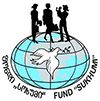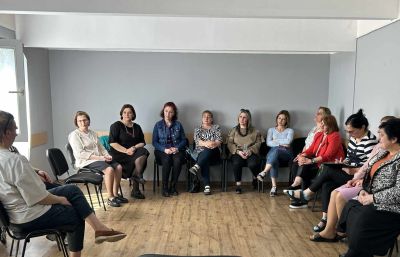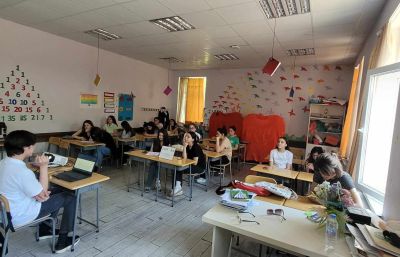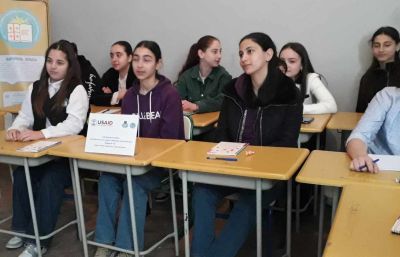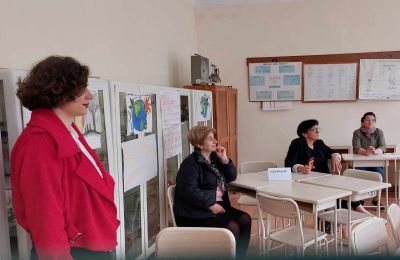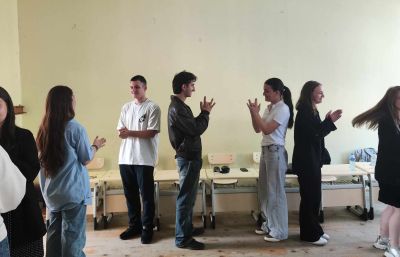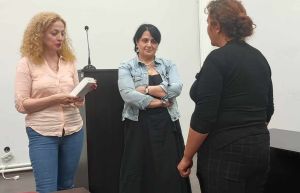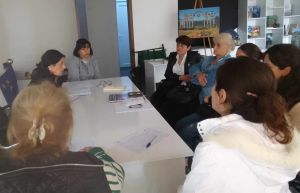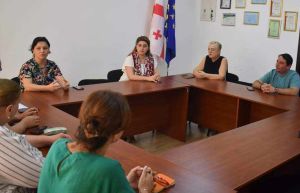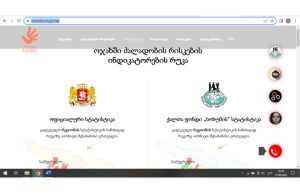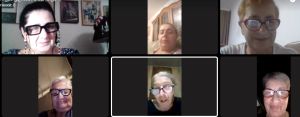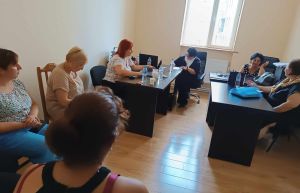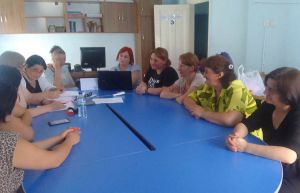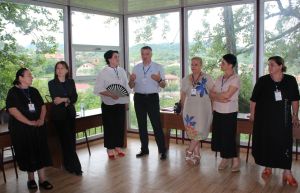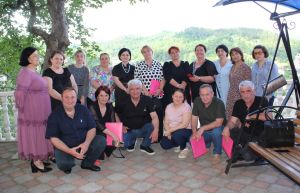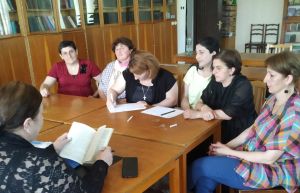Handing over the phone is considered as assistance in our project, because its absence often creates many problems.
Handing over a phone helps to empower women (using the phone they can find information about vacancies or daily work), protection and assistance to victims of violence using the SOS button, communication according to various needs.
In short, necessity of phone is obvious today. That is why our organization distributes the phones according to certain criteria. Over the past three months, 6 women have received phones: in Tskaltubo, Chokhatauri, Kobuleti, Samtredia and Terjola (two women received them here).
In addition, three of these six women spent two weeks in our rehabilitation center and received comprehensive support.
The project is implemented with the support of the Urgent Action Fund for Women's Human Rights
Initiative, active mutual support groups were created in 10 municipalities.
Project assistant met group members in Tskaltubo, Chokhatauri, Zugdidi (village Khurcha) and Vani municipalities, and held an online meeting with the Bagdati group.
Case related to early marriage was discussed in Tskaltubo, in Chokhatauri they talked about the problems of rural women. Bagdati group talked about more effective assistance to violence victims, and in Khurcha, the active participation of local government was emphasized. Psychologist held an ordinary meeting with Vani women group.
other five municipalities - Senaki, Tsalenjikha, Samtredia, Terjola and Kobuleti - the group leaders held meetings themselves. Problems were identified everywhere (payment of alimony, housing or property cases), and advocacy is carried out in cooperation with local government. Group members want their work and results to be an example for other women.
The project is implemented with the support the Equality Fund (Canada)
Mutual support groups try to identify problems in all municipalities. Groups in Bagdati, Kobuleti, Chokhatauri, Samtredia identified several problems and started to advocate them.
Senaki women's mutual support group is actively working on two cases. The members of the group are women living not only in the city, but also in villages.
The motivated groups of Vani and Terjola, give an example for others on how to solve their own problems.
Tskaltubo mutual support group is the only group composed by IDP women. Members of the group have identified three problems and work with local government to resolve them.
The summer was very active...
The project is implemented with the support the Equality Fund (Canada)
The creation of a new panel has begun on the site "Digital Resource Center for Services of Violence Victims" https://sosfsokhumi.ge/map
This includes the identification of indicators of violence against women/domestic violence and security risk in the pilot municipalities in order to ensure timely responses to the threats faced by women and to ensure appropriate advocacy.
It is planned to assess the risks of domestic violence and violence against women in 10 target municipalities of the Women Fund “Sukhumi”: Zugdidi, Tsalenjikha, Senaki, Tskaltubo, Khoni, Kutaisi, Bagdati, Chokhatauri, Samtredia, Kobuleti.
The project is implemented with the support the Equality Fund (Canada)
Tsalenjikha mutual support group identified problems, intends to solve them, and started communication with the social agency.
The Zugdidi mutual support group meets in the village Koki, and the group consists mainly of women from this village. From September, vulnerable groups from different villages will join the group. Representative of local government will attend the meetings - this will facilitate cooperation with government agencies and the advocacy process.
In August, online meetings were held with groups from Tsalenjikha and Zugdidi. Psychologist of the Women Fund “Sukhumi” also took part in the meeting with the Zugdidi group.
From September, greater activity is expected in both groups, which means working on problem solution.
The project is implemented with the support the Equality Fund (Canada)
Groups of mutual assistance have been established in ten municipalities. These groups should facilitate the exchange of information about services available in the country for women - victims of violence. According to the project it is planned to improve the digital literacy of the group members.
With this aim, digital literacy courses have been launched.
Teacher of computer technology Kristi Kutateladze held the first meetings in of Kobuleti, Terjola and Chokhatauri municipalities.
Group members talked about the information they had about municipal programs. Then they examined the web page of the Women Fund "Sukhumi" - sosfsokhumi.ge. in detail.
“I showed them how to find organizations or programs that offer the services they need,” said Kristi Kutateladze. - We discussed in detail the SOS button, its meaning, installation and use. I also taught them how to “google” their municipality and use the services they need. We have saved the mentioned websites in Google bookmarks to easily use them in the future”.
Work will continue with women, by the end of the course their digital literacy will noticeably increase, and they will be able to solve problems.
The project is implemented with the support the Equality Fund (Canada)
The work of women's mutual assistance groups is gradually becoming more active. Meetings were held in all ten groups. Project Assistant Nino Chabukiani met with members of the group in five municipalities (Tskaltubo, Samtredia, Kobuleti, Terjola, Chokhatauri) - the meetings focused on the needs and problems of women, advocacy and cooperation with local government.
Women know that they need to study more to advocate for their interests, so a new component was added to the meetings - digital literacy courses. The courses have already started in the municipalities of Kobuleti, Terola and Chokhatauri. During the meetings, the women learned how to search for the necessary information on the Internet, got acquainted with the unique platform - sosfsokhumi.ge, which contains the necessary materials for victims of violence. This work helps to increase the digital competence of the team members.
A member of one of the mutual assistance groups is currently undergoing psycho-rehabilitation at the Rehabilitation Center of the Women Fund "Sukhumi" in order to return home stronger and work more actively in the group.
The project also envisages transfer of mobile phones with an SOS application to make it easier for women to protect themselves and their children. In July, telephones were given to women living in Terjola municipality. The Mayor of Terjola Manuchar Robakidze and Deputy Chairman of City Council David Gogberashvili took part in the action of support.
The project is implemented with the support the Equality Fund (Canada)
“The training format allowed us to talk about the reasons of the problem, when we behave correctly or incorrectly. It is necessary that everyone understands their direct responsibility.
“I would focus on the information received, interesting methods and a good environment during the training”...
This is part of feedback from the training for medical personnel.
The training in Kutaisi was attended by 15 participants from Khoni, Tsalenjikha, Senaki, Chokhatauri and Zugdidi municipalities.
“The role of medical staff in violence prevention and victims protection” - this was the topic of the training, and together with the trainers, the participants actively discussed issues related to violence against women and children...
The training was held within the framework of the project "Digital Resource Center of Services for Violence Victims”.
At the meeting, the participants were also informed about the practical guide/toolkit: "Preventing and responding to gender-based violence in war and post-war settings - experiences and recommendations of women's NGOs", which was developed by the WAVE Network in collaboration with its four WAVE members in 2022 by the support of the OSCE. The Toolkit describes best practices and the strategies employed by the women's NGOs to prevent and respond to gender-based violence in different phases of conflict.
- Strategies during Wartime and emergency response settings were shared by Ukrainian and Armenian partners Sexual Assault Crisis Center (Yerevan, Armenia), Centre “Women’s Perspectives” (Lviv, Ukraine);
- Strategies during Protracted conflict were described by the Women's Foundation "Sukhumi" (Kutaisi, Tbilisi, Georgia);
- Strategies during Post-war and long-term perspective were based on the experience of the Bosnia-Herzegovina partner. Foundation United Women Banja Luka (Banja Luka, Bosnia & Herzegovina)
(A practical guide is available here https://www.osce.org/secretariat/530695)
The project is implemented with the support the Equality Fund (Canada)
Gender, gender-based violence, identification of violence, communication with a child and referral stages, legal mechanisms and the role of teachers in the prevention of violence, international documents - these issues were discussed at the training for teachers held in Kutaisi. The participants represented 5 municipalities: Senaki, Tsalenjikha, Terjola, Samtredia, Kobuleti.
At the meeting, the participants were also informed about the practical guide/toolkit: "Preventing and responding to gender-based violence in war and post-war settings - experiences and recommendations of women's NGOs", which was developed by the WAVE Network in collaboration with its four WAVE members in 2022 by the support of the OSCE. The Toolkit describes best practices and the strategies employed by the women's NGOs to prevent and respond to gender-based violence in different phases of conflict.
- Strategies during Wartime and emergency response settings were shared by Ukrainian and Armenian partners Sexual Assault Crisis Center (Yerevan, Armenia), Centre “Women’s Perspectives” (Lviv, Ukraine);
- Strategies during Protracted conflict were described by the Women's Foundation "Sukhumi" (Kutaisi, Tbilisi, Georgia);
- Strategies during Post-war and long-term perspective were based on the experience of the Bosnia-Herzegovina partner. Foundation United Women Banja Luka (Banja Luka, Bosnia & Herzegovina)
(A practical guide is available here https://www.osce.org/secretariat/530695)
Participants were actively involved in the training process, in discussions, sharing their experience with each other. According to them, the training will contribute to the destruction of gender stereotypes and the prevention of violence - the mechanisms of early identification and intervention.
It was noted that after the training they will introduce gender approaches in schools and will actively participate in the process of identifying cases of violence.
The project is implemented with the support the Equality Fund (Canada)
The groups were updated with new members and are already staffed with women who are ready for active work. They got acquainted with the municipal programs for social protection and health care. During the meetings, they talked about existing services and they used. All groups have identified issues that they will start advocating.
There are already first results: one woman was assisted with medicines, another - in resolving the housing issue.
Each result is a motivation to the next success.
Project Assistant Nino Chabukiani met with women self-assistance groups established in Vani and Senaki, also in Chokhatauri, Terjola, Kobuleti and Samtredia municipalities. Meetings were held by group leaders, representatives of our organization.
The project is implemented with the support the Equality Fund (Canada)
